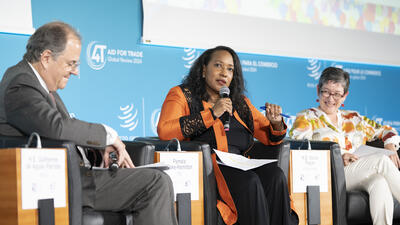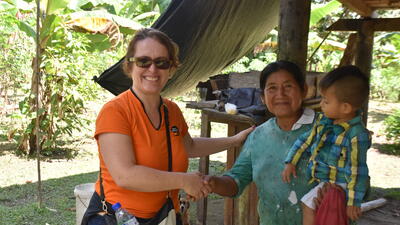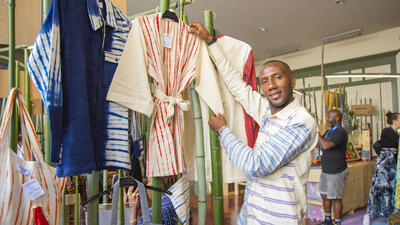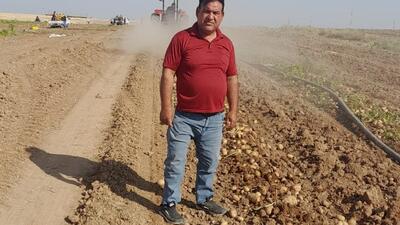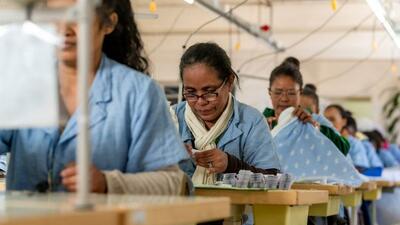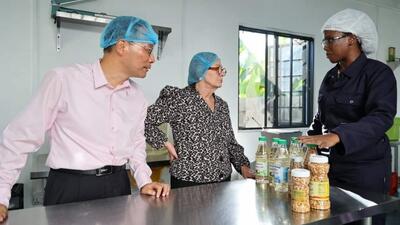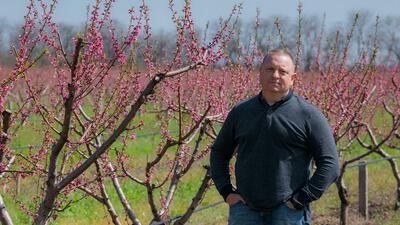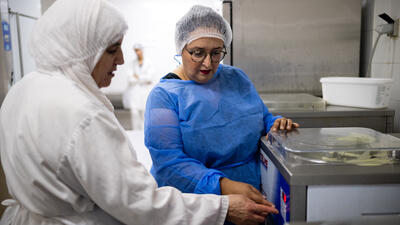
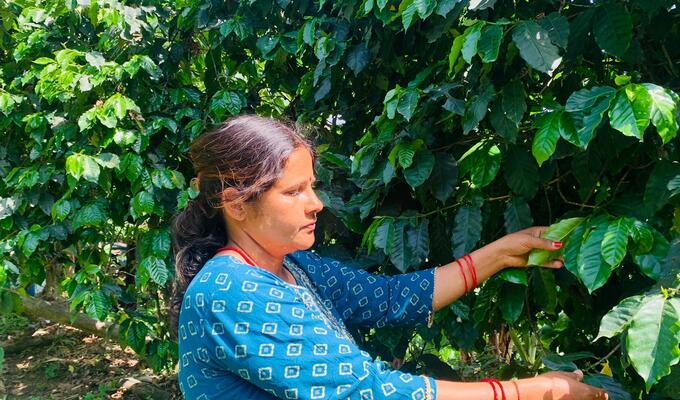
Nepali coffee farmer contributes to her community
For Micro-, Small, and Medium-sized Enterprises Day 2023, we celebrate small entrepreneurs from all over the world. Small businesses account for 90% of the world's businesses, 60 to 70% of employment, and 50% of the global economy. They contribute to local and national economies and to the achievement of the Sustainable Development Goals.
Please introduce yourself
With eight years of experience, I have become a leading coffee farmer in Kaski district, in the Nepalese province of Gandaki. I took my career to the next level by attending two crucial workshops on farming and exporting coffee, with support from the ITC. I am now a coffee farming trainer, after taking a Training of Trainers (ToT) workshop. I share my knowledge with other farmers while applying the techniques I learned on my own farm. Training on coffee exports showed my various dynamics of selling to international markets.
Tell us about your company
I have been farming Nepali speciality coffee in my home yard in Pokhara Metropolitan City. Though I have not registered my own firm for coffee production, I am associated with the Fewa Organic Coffee Cooperatives in Pokhara, which have been selling my coffee. I have raised 50 Arabica plants that will give fruits from next year, and 10 other plants that have been giving fruits for the last few years. I sold 60kg of fresh cherries produced by those plants this year.
What are the challenges you have witnessed in coffee farming?
Coffee farming involves multiple risks such as natural threats such as hailstone and mist, as well as attacks from various diseases and pests. Land is becoming scarce as the city grows, and it’s hard to find enough workers. These are emerging challenges in the coffee sector. I have very limited land to use for coffee farming, which has hampered my farm expansion plan.
What are your needs for further growth?
We need regular refreshment training opportunities to get ourselves updated about the latest techniques and emerging opportunities in this sector. Given the risks of natural calamities and diseases, we need insurance subsidies from the government to enhance our competitive strength. Required land parcels should be made available to support the expansion of existing farms.
What is your best success?
After I successfully completed the ITC-supported ToT workshop last year, I gained the confidence to spread knowledge among fellow farmers. I am grateful to ITC for this opportunity that turned me from a layman into a coffee farming trainer. I have been sharing my knowledge on modern coffee farming, including land management, coffee processing, nursery management, orchard management, and the organic certification process. I have already shared my knowledge with 42 fellow members of our cooperative as well as with 26 farmers in the neighboring Syangja district. I am planning to expand my existing farm to take benefit of good market prospects of Nepali speciality coffee.
What is your message to other small entrepreneurs?
I would suggest to those who wish to become entrepreneurs, that you properly study the challenges and opportunities in the respective sectors. Take the advice of experts and other entrepreneurs before taking a decision on any entrepreneurship. Don’t leave your land fallow, you can utilize the land for many kinds of commercial purposes. Don’t compromise the quality of your products to ensure the sustainability of your business. I want to welcome new farmers in Nepali specialty coffee farming as the international market of coffee is growing with brighter export prospects.




